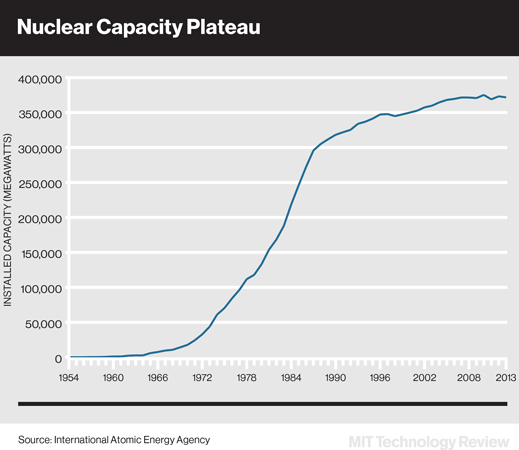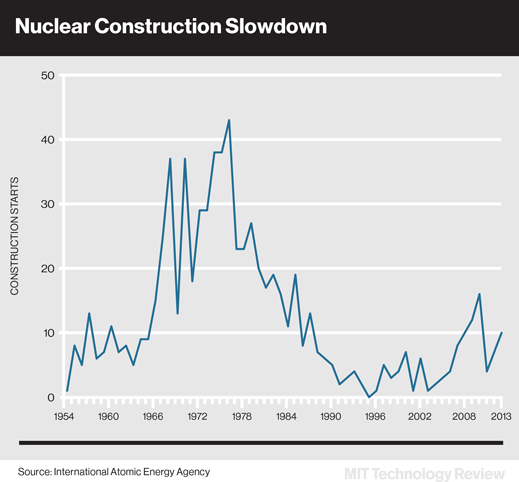A Slump in Nuclear Construction Could Have Climate Consequences
If nuclear power is to play a role in lowering carbon emissions, as many experts believe it must, then construction of a new generation of nuclear power plants will need to begin soon.
Worldwide construction of new nuclear plants dropped significantly in recent decades, while global nuclear power output has plateaued. Construction has slowed largely because of high capital costs and poor market conditions. Recently, the Fukushima disaster also prompted some nations to cancel planned plants and shut down existing ones.

The lack of new construction is particularly worrisome because it takes at least five to 10 years to build a new reactor, and reactors typically last only 30 to 40 years. That means the reactors built in the 1970s, at the height of the nuclear boom, are already aged, and many are due for decommissioning.
The International Energy Agency projects that installed capacity worldwide will be between 5 and 24 percent below where it needs to be in 2025 to ensure at least a 50 percent chance of limiting the average global temperature increase to 2 °C. The agency says 186 gigawatts of new nuclear capacity must be added between now and 2025, or about 17 gigawatts per year.
The shortfall is projected despite ambitious construction plans among several nations, including China and Russia (see “Nuclear Options”). In contrast, last year newly added nuclear capacity in the U.S. was only enough to offset plant retirements (See “Reactor Retirements Will Hurt U.S. Emissions Cuts”).

Keep Reading
Most Popular
Large language models can do jaw-dropping things. But nobody knows exactly why.
And that's a problem. Figuring it out is one of the biggest scientific puzzles of our time and a crucial step towards controlling more powerful future models.
How scientists traced a mysterious covid case back to six toilets
When wastewater surveillance turns into a hunt for a single infected individual, the ethics get tricky.
The problem with plug-in hybrids? Their drivers.
Plug-in hybrids are often sold as a transition to EVs, but new data from Europe shows we’re still underestimating the emissions they produce.
Stay connected
Get the latest updates from
MIT Technology Review
Discover special offers, top stories, upcoming events, and more.